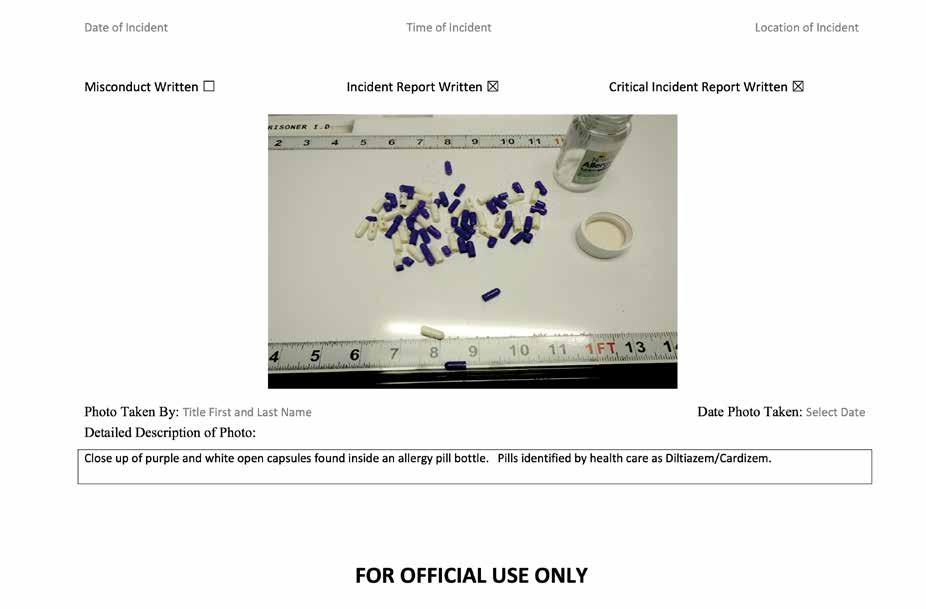




















We got comments about the start of the Tigers’ 25th season at Comerica Park.
I love the Detroit Tigers, but i won’t be coming this year. Canada isn’t for sale. Sorry @tigers.bsky.social - you could speak out for your Canadian fans or we won’t be there. It won’t hurt on Opening Day, but it will over the course of the season. We even stopped the Tunnel Bus service. —@realchet.bsky.social, Bluesky
I wish everyone wasn’t so awful downtown on Opening Day. Every mouth breather from Bay City to Toledo shows up and fucking trashes the place.
—@jjfs37, Instagram This is what I love about Michigan & this is
#DETROIT! Everyone celebrates TOGETHER! Not to compare, but I have residents in both—you’ll NEVER see this in REAL LA. You barely see it in Hollywood: Award shows, etc. I never noticed how Segregated LA was until I visited home after 2 years of living there. Sights like this are nonexistent & why I’d never raise kids there. Remember LA had racial riots in the mid-90s������ I’m so proud to be a #Michigander & full time resident again �� —@meghancredible, Instagram
Opening day should be a recognized paid holiday in Michigan —@lifeofdurf, Instagram
Let’s go Tigers��and Red Wings ❤❤ —@flemama, Instagram
Sound off: letters@metrotimes.com







Metro Detroiters gathered on Saturday for a rally and march down Woodward Avenue against President Donald Trump and Elon Musk. According to organizers, the nationwide “Hands Off!” day of action demanded “an end to the billionaire takeover and rampant corruption of the Trump administration; an end to slashing federal funds for Medicaid, Social Security, and other programs
working people rely on; and an end to the attacks on immigrants, trans people, and other communities.” Others at the event protested the wars in the Middle East and Ukraine and some were also critical of Democratic Party leadership as well. Detroit’s was one of more than 1,400 protests held in cities around the world.
Planned Parenthood of Michigan will close three clinics and cut staffing by 10% as it restructures operations in response to what the organization described as escalating threats to reproductive health care and federal funding.
The Jackson, Petoskey, and Marquette health centers will permanently close April 30, with final appointments scheduled for April 25. In Ann Arbor, two health care centers will be consolidated by May 5.
The moves are part of a broader effort to streamline operations and expand the organization’s Virtual Health Center, which provides telehealth services for
birth control, medication abortion, and gender-affirming care.
The shakeup comes as the Trump administration moves to freeze Title X family planning funds, citing alleged violations of the president’s executive orders targeting diversity, equity, and inclusion initiatives. Planned Parenthood officials said the funding freeze, coupled with additional expected restrictions on abortion access and Medicaid reimbursements, poses a serious threat to their ability to operate.
“The Trump administration and its anti-abortion allies have made clear their intention to defund Planned Parenthood and attack access to sexual
and reproductive health care nationwide — so while these attacks are devastating, they are not a surprise,” Paula Thornton Greear, president and CEO of Planned Parenthood of Michigan, said.
“Our decision to restructure reflects months of strategic planning and careful financial analysis. These necessary changes strengthen PPMI’s ability to adapt quickly in a challenging political landscape. While implementing difficult decisions is never easy, they are essential to protect our long-term capacity to fulfill our mission and serve Michigan communities for generations to come.”
In addition to clinic closures, the restructuring will result in layoffs across
clinical, programmatic, and administrative departments. The organization did not disclose how many employees will be affected but said it represents 10% of its workforce.
“This evolution of our service model allows us to be flexible in how we weather the storms ahead, while still maintaining our commitment to provide care, no matter what,” Dr. Sarah Wallett, chief medical Operating officer at Planned Parenthood Michigan of Michigan, said. “By expanding our virtual care services and focusing our resources more effectively, we can continue meeting patients’ needs wherever they are in Michigan, even as the
health care environment becomes more restrictive.”
Planned Parenthood officials said they remain committed to providing care in communities affected by the closures. The organization plans to expand its virtual services to seven days a week with extended morning and evening hours. Patient navigators will help those who need in-person care access transportation and support.
More information about the changes is available at ppmi.org, where patients can also donate to support services through the Patient Care Fund.
—Steve Neavling

A new round of billboards in Lansing and Detroit is calling on Michigan lawmakers to outlaw painful dog experiments at Wayne State University and pass legislation known as Queenie’s Law.
The campaign, funded by the nonprofit Physicians Committee for Responsible Medicine, includes five billboards near the state capital and one on I-75 in Detroit. Each features a beagle next to the message: “$15 Million Wasted on Wayne State’s Dog Experiments? ENOUGH. Pass Queenie’s Law!”
The ads refer to bipartisan legislation introduced last month by Rep. Joe Aragona, R-Clinton Township, and Sen. Paul Wojno, D-Warren, that would ban painful experiments on dogs at publicly funded institutions in Michigan.
The package of bills — HB 4254 and SB 127 — is named after Queenie, a stray dog from Gratiot County who was subjected to seven months of heart failure experiments before being killed at Wayne State.
The billboards will remain up through April 27, with three staying in place until May 25.
Since 1991, the National Institutes of Health (NIH) has spent about $15 million on the university’s canine research that has produced no usable results, according to the Physicians Committee.
“Republicans and Democrats agree we should not be wasting millions of taxpayer dollars to inflict pain on dogs,” Ryan Merkley, director of research advocacy for the group, tells Metro Times. “This is a political no-brainer.”
Merkley says the legislation taps into growing concerns about federal research funding and waste.
“We are currently at a time when people are more skeptical than ever about how the NIH is funding research and the kind of research it is funding,” Merkley said. “This is a perfect case study of research funded by NIH that is demonstrably cruel and clearly unproductive. Wherever you are in the political spectrum, whether you care
about dogs or cutting government waste, everybody should get on board with ending these federal experiments.”
Public records obtained by the Physicians Committee describe invasive procedures in which dogs’ chest cavities are surgically opened and wires and catheters are inserted into their hearts. Implanted devices induce heart failure, and surviving dogs are forced to run on treadmills while researchers monitor their conditions. Wayne State has also begun feeding dogs high-fat diets to simulate metabolic disorders that can lead to strokes, according to the committee.
All of the dogs eventually die, either from the experiments or related complications. Some have been found dead in their cages; others have died from internal bleeding or were euthanized due to infections.
In August 2023, the Physicians Committee delivered 104,243 petition signatures to Wayne State’s new president, Kimberly Andrews Espy, urging her to end the dog experiments.
“I hope you can make good use of these,” Merkley told a receptionist at Espy’s office after a campus rally.
At the time, Merkley told Metro Times, “They artificially create heart failure in dogs. Over the course of two to four surgeries, they place numerous devices in and around the heart, around major arteries, and those devices, put next to delicate blood vessels, often cause internal bleeding. We have 15,000 pages of public records showing numerous dogs dying from those devices nicking an aorta, and the dog’s chest cavity fills with blood. They find dogs dead in their cages from these experiments.”
Over the past decade, the group has repeatedly called on the university to stop the research, saying the experiments are cruel and haven’t produced meaningful results.
Wayne State, however, has defended the research in multiple statements, saying it is federally approved and aimed at improving treatments for cardiovascular disease.
“Heart disease is the number one killer in America, so the odds are the research is going to benefit your health or the lives of your loved ones,” the university said in a previous written statement. It added that the research is supported by the National Institutes of Health and aims to develop “new strategies for the treatment of congestive heart failure and hypertension.”
The university said it “is committed to the responsible and ethical use of animals in research” and “maintains the highest professional standards in conducting biomedical research, as well as the highest level of care for animals used in the research.”
Still, critics say the experiments have persisted for more than three decades without any clear evidence of clinical breakthroughs. In August 2021, Metro Times reported on billboards installed near campus that featured dogs who had died in the experiments, including Dog #2002, who was euthanized after her chest filled with blood following a second surgery.
“There is a clear pattern of dogs suffering and dying in troubling ways at Wayne State,” 11 state lawmakers wrote in a 2021 letter to then-President M. Roy Wilson. “We are also alarmed that these experiments have been conducted for 30 years without any evidence that they have benefited patients.”
The Physicians Committee and several lawmakers have pointed to viable alternatives to dog testing, including a functioning human heart model developed at Michigan State University, as well as research using donated and diseased human hearts. The Texas Heart Institute ended its use of dogs in 2015, citing physiological differences that made canine research ineffective for human cardiovascular treatment.
“Wayne State has an opportunity to finally end these fruitless experiments and instead focus on research that is humanrelevant and that benefits the people of Michigan,” lawmakers wrote.
—Steve Neavling

BIRTHDAY, RYAN
4/11 J MICHAEL & THE HEAVY BURDEN/ BMCC JAMBOREE/DAVE TONNIES (americana/folk rock) Doors@9p/$5cover Sat 4/12 DIVAS VS DIVAS MONTHLY DANCE PARTY w/ DJ AIMZ & DJ EM mixing 90’s & 00’s Doors@9p/$5cover Mon 4/14 FREE POOL ALL DAY HAPPY BIRTHDAY, VALID & ENGLISH JOE! Coming Up: 4/18 Castle Black(NYC)/Sound of the Shell/ Sonic Smut/Cherry Drop 4/19 DANNY OVERSTREET DAY 4/19 Winestoned Cowboys/Rachel Brooke/ Cory Grinder & The Playboy Scouts
4/25 Vlad’s Skeletal Circus/Living Ai/ Lonesome Skeleton Band 4/26 FOOL SCHOOL pres. “Sally Jenny Donahue”
5/02 Vultures of Culture/Funderbird/3148s
5/03
w/NICK
Parties:
Old Miami T-shirts & Hoodies for Sale!

An administrative law judge has found that a cannabis testing company launched by three former Michigan State Police cops repeatedly violated state rules by using unapproved testing methods and failing to properly document laboratory procedures, despite warnings from regulators.
The decision marks the latest development in a years-long conflict between the state’s Cannabis Regulatory Agency (CRA) and Viridis Laboratories, which operates facilities in Lansing and Bay City and tests more marijuana than any other lab in Michigan.
The labs were founded in 2018 by Greg Michaud, the former director of the Michigan State Police forensic division; Todd Welch, a retired MSP forensic scientist; and Dr. Michele Glinn, a former MSP toxicologist. Together, the trio said they had more than 85 years of drug testing experience and launched Viridis with the goal of bringing scientific credibility to Michigan’s newly regulated marijuana industry.
But soon after the labs gained traction, state regulators accused Viridis of inflating THC levels and failing to follow basic scientific protocols.
Despite repeated investigations, public criticism, and a historically large cannabis recall in 2021, the labs have continued to operate. Viridis says it tests roughly a quarter-million pounds of cannabis flower each year.
Still, stories of inflated THC levels have become so widespread that some consumers boycott cannabis products tested by Viridis, which critics say is often reporting suspiciously high potency.
The judge found that Viridis violated multiple administrative rules by deviating from approved testing methods, failing to validate changes to those methods, and not maintaining adequate records for microbial testing. In one case, technicians misidentified visible mold on a sample and passed it, describing it as “mite poop,” according to testimony during the hearing. In another, inspectors discovered that technicians were using lower magnification levels than required to screen flower for foreign matter.
“Petitioners failed to comply with the approved SOP [Standard Operating Procedure] for foreign matter analysis and failed to employ a laboratory manager to ensure that all testing is conducted in accordance with Mich Admin Code,” Administrative Law Judge Stephen Goldstein wrote.
The decision also undercut Viridis’s central argument that the state’s investigations and inspections were unnecessarily disruptive and driven by a vendetta to damage the lab’s market share. The judge dismissed that claim, concluding that the
CRA’s oversight efforts were appropriate and “did not shock the conscience” or meet the legal threshold for arbitrary or retaliatory government conduct.
Viridis has argued that its potency testing method was validated through a standard program, but the tribunal found that certification fell short of the state’s requirement for a full method validation. The program, for example, didn’t review the portions of the process that the CRA found problematic, which was sample preparation and homogenization.
In rejecting the lab’s claim of “tacit approval,” the judge pointed to evidence that Viridis changed its approved testing procedures in late 2020 and 2021 without providing the CRA with the required independent validation. The lab continued to pass semi-annual inspections only because, at the time, licensees merely needed to have an approved SOP on file, not necessarily follow it.
The regulatory gap was exposed in late 2021 when the state issued the largest cannabis recall in Michigan history. More than 400 dispensaries were forced to pull an estimated $229 million worth of flower and edibles from shelves after CRA investigators flagged Viridis’s test results as unreliable. Many dispensaries said the recall threatened their financial survival, and the impact rippled through the state’s cannabis supply chain.
Viridis responded by filing a lawsuit against the state, accusing it of bias and regulatory overreach. Its lawyers claimed the CRA targeted the labs without cause or attempted to “cripple” the company by ignoring industry standards and involving competitors in the investigation.
But the judge found little evidence to support these claims. While one CRA scientist had expressed personal skepticism about the lab’s scientific practices, the ruling said Viridis failed to show any direct link between the bias and the agency’s actions. Instead, the tribunal noted that CRA’s inspections were prompted by specific red flags, such as unusually high THC results, resorts of passing moldy product, and discrepancies in microbial testing data.
According to CRA data, Viridis’s Lansing lab reported Aspergillus failures 89% less than other labs in the state, raising further concerns about reliability.
Still, despite the agency’s findings and widespread criticism in the cannabis industry, Viridis retains a significant market presence.
The CRA will now decide whether to adopt the tribunal’s findings and what sanctions, if any, to impose. The agency is authorized to issue fines, suspend licenses, or take other disciplinary action.
—Steve Neavling
State Sen. Mallory McMorrow — a rising Democratic star known for her viral rebuttal of right-wing attacks and sharp criticism of President Donald Trump — is running for U.S. Senate in 2026, hoping to succeed retiring Sen. Gary Peters.
In a two-and-a-half-minute campaign announcement video released last week, McMorrow cast herself as part of a new generation of Democrats ready to push back against the influence of Trump and billionaire Elon Musk, while criticizing the Democratic establishment for failing to meet the urgency of the moment.
“There’s a lot of fear and anger and uncertainty right now about people in power who, frankly, have no business being there,” McMorrow said in the video. “So you know what won’t fix it? The same old crap out of Washington.”
McMorrow, 38 represents a district that includes parts of Detroit and the suburbs. She gained national attention in 2022 after delivering a fiery Senate floor speech denouncing a Republican colleague’s false accusation that she supported the “grooming” of children.
In her rebuttal, McMorrow described herself as a “straight, white Christian, married, suburban mom” who wants “every kid to feel seen, heard, and supported – not marginalized and targeted because they are not straight, white, and Christian.”
Now in her second term in Lansing, McMorrow is positioning herself as a no-nonsense voice willing to challenge both Republicans and her own party. In her announcement, she pointed to what she called the Democratic Party leadership’s failure to offer voters a clear, compelling alternative to Trumpism.
“We need new leaders,” she said. “Because the same people in D.C. who got us into this mess are not going to be the ones to get us out of it.”
McMorrow is the first prominent Democrat to enter the race. U.S. Reps. Haley Stevens and Kristen McDonald Rivet are among those still weighing a run. Republicans see Michigan as a top Senate pickup opportunity after Trump carried the state again in 2024.
Former Rep. Mike Rogers, the GOP’s 2024 Senate nominee, is expected to run.
While some Democratic hopefuls have distanced themselves from divisive national issues, McMorrow has leaned in. Her launch video includes footage of her appearance at the 2024 Democratic Convention, where she held up a giant mock book labeled “Project 2025,” a reference to the right-wing blueprint for reshaping the federal government. The plan, which

has gained traction in Trump’s circle, calls for dismantling major federal agencies and replacing career officials with political loyalists.
“If Donald Trump gets back into the White House, he’s going to fire civil servants, like intelligence officers, engineers, and even federal prosecutors if he decides that they don’t serve his personal agenda,” McMorrow said during the convention speech. “They’re talking about replacing the entire federal government with an army of loyalists who answer only to Donald Trump.”
McMorrow’s campaign comes on the heels of her new book, Hate Won’t Win, a political memoir and organizing guide that blends personal stories, policy views, and campaign lessons. In it, she calls on Democrats to reclaim the language of faith and community, and to stop letting Republicans define the political narrative.
“Republicans are really good at story,” McMorrow told Metro Times columnist Joe Lapointe in last week’s issue. “We’ve got to get better at storytelling and telling an aspirational story of the new American dream that people want to see themselves in.”
She added, “We’re letting Republicans define Democrats in ways that are untrue . . . Instead of fixing the issues, Republicans will tell you it is somebody else’s fault to make you angry and fearful of somebody else.”
McMorrow has built a national fundraising base since her 2022 speech, drawing donations from every state. She has also made clear she won’t fall in line with Senate leadership if elected, saying she would not support Chuck Schumer to lead the caucus in 2027.
McMorrow said time is running out.
“We don’t have a minute to wait. Are you with me?” she asked.
—Steve Neavling

By Joe Lapointe
Some random observations after attending the home opener of the baseball season — a 7-4 Tigers victory over the Chicago White Sox — and watching it later on a TV recording. Followed by more sports shorts . . .
Lots of parking lot operators hit the $100 threshold. Supply and demand, of course. I got there early enough to find a free curb space less than one mile from Comerica Park — right across the street from a lot priced at $50. In many cases, your car space costs more than your game ticket.
Among the tailgate parties marched 10 Detroit police horses (mounted by their riders), seven in one herd and three in the other. (Enough for a derby!) In the Detroit area, as we constantly remind each other, the home opener is considered an unofficial civic holiday.
That’s a mixed blessing. Or, perhaps, a mixed-drink blessing. On the FanDuel pre-game show, reporter Johnny Kane asked a tailgater “You know what time it is?” and the man responded “Time to drink!” The clock had not yet reached the crack of noon.
A few hours later, inside the ball park, there were long lines at the rest rooms and the drunk guy behind my upper deck seat constantly dropped loud “F-bombs” in just about every sentence. And he was in a good mood.
Both at the ball park and on TV, you couldn’t help but notice the strange sight of all those new, empty, bluegreen seats behind home plate in the lower deck, a prime section containing the very best views in a sold-out stadium.
These 300-plus “Home Plate Club” seats look like the first-class cabin of an airplane. They even have headrests.
They seemed roughly half-filled on a day when all tickets were allegedly sold. These chairs are expensive. (If you have to ask, you can’t afford them.)
The Tigers won’t reveal the prices although the Detroit News reported it to be $200 per game at minimum and $16,200 for a season at minimum. You have to buy more than one game in a package.
They come with technology that will warm or chill your rear end. It is part of a renovation that has seen the lower deck behind home plate sub-divided into three, gentrified, gated communities geared toward corporate expense accounts and gentrification.
Perhaps those prime seats will sell better later in the season when the Tigers finish building the exclusive private HPC dining area below the grandstand and connected to these cushy seats. Maybe they should stick with the franchise’s feline theme and change the club name to “Fat Cat Habitat.”
For much of the opening game, the giant scoreboard in left field showed the wrong score. Whoever ran the contraption was late to post runs while an inning was in progress and often late to post the updated score in between innings.
In addition, the scoreboard format is aggravating even when working right. If you look up between pitches, the big board — as well as all the little boards — tell you to “Get loud!” If you want to know the inning, batter, count, or number of outs — or even the gosh-darn score — forget about it.
The scoreboard instead tells you to “Make noise!” This mess needs fixing. Stop showing so many shots of fans mugging for the camera and squealing “Wheee-hoo!” Show more replays and fewer young women shouting house promotions into microphones. Just cover the darn game. Thank you.
At times, you can’t tell the Tigers’ radio and television announcing teams without a scorecard because so many voices shuffle back and forth, in and out. This year, Craig Monroe and Kirk Gibson are gone, for different reasons.
But the best of all combinations might be on the FanDuel telecasts with Jason Benetti on play-by-play and Andy Dirks as color analyst. Both are bright and wellinformed, with a bent toward absurdist humor. (Where else can you hear a discussion about how many human beings think they could win a fight with a grizzly bear?)
When Spencer Torkelson struck out with a loud F-bomb Friday, Benetti quipped: “I’m just glad to know our field mics are A-Plus.” One suggestion: Go easy on the schtick. This isn’t Pee-Wee’s Playhouse. A little goes a long way.
The astonishing turnaround for the playoff-bound Pistons is one of America’s best sports stories. They’ve qualified for the post-season for the first time since 2019 and they aren’t the kind of team any foe would want to meet in the first round of the tournament.
Team president Trajan Langdon and
Coach J.B. Bickerstaff have built — in less than 12 months — a team with versatility, personality, and a chip on its collective shoulder. Let’s hope the six-game absence of guard Cade Cunningham — he returned Saturday night — was a well-earned rest rather than the “left calf contusion” that was officially announced.
In his fourth NBA season, Cunningham continues to ripen as a team leader and a multi-talented force who makes his teammates better. At times, Cunningham and center Jalen Duren seem to be sharing the same brain, teaming up for crisp high screens and alley-oop dunks.
Around them, Isaiah Stewart fills a niche as a shot-blocker and physical intimidator; Malik Beasley hits long jump shots for three points; and Dennis Schroder fits right in as the backup floor leader.
Back when all four local pro sports teams were near the bottom of their respective league standings, the playoff drought of the Red Wings blended in with the whole dreary atmosphere. But now that the other three have reached their respective tournaments in the last few months, the struggle of the hockey team stands in sharp relief.
Yes, the Wings could get hot and reach
the tournament in these final few games of the regular season. But, if they don’t, you have to wonder why they haven’t built a contender or even a playoff qualifier since 2016. In his six years as general manager, Steve Yzerman has constructed a roster that no foe fears.
They get bullied by meaner teams, like Ottawa and Anaheim. If they fail to qualify again, a star like captain Dylan Larkin might need a new scene, even though he is a local boy who made good. He’s gone stale here and that’s the danger facing other young talents like Mo Seider, Lucas Raymond, Simon Edvinsson, and Marco Kasper . Yzerman is now on his third coach. Perhaps the problem is neither the coach nor the captain.
In several decades of hockey coverage, I personally saw more than 100 of Wayne Gretzky’s 894 regular-season career goals, the most at that time in the history of the National Hockey League. I covered him closely for three seasons in New York where he finished his 20-year career with the Rangers.
On Sunday, Alex Ovechkin of the Washington Capitals scored his personal No. 895 to break Gretzky’s record, so Gretzky went on the ice in the immediate
ceremony and he said all the right things. More than any good or bad guy I’ve covered in sports, Gretzky was the most cordial and professional star to deal with.
Lately, he’s been laying low and it has been sad to read and hear how some Canadians have turned against this national hero because of his friendship with U.S. President Donald Trump, who insults Canadians gratuitously and threatens them with tariffs.
In all the years I’ve known him, Gretzky always tries to say and do the right thing. He would suffer silly questions mercifully. He knew he was a role model and embraced the role. Sure, he often spoke in cliches, but always in a moderate and helpful tone.
On Sunday, one of Gretzky’s strongest statements was non-verbal. He wore on his suit coat lapel a pin that showed a red background behind a white No. “9.” Some may have overlooked it, but Detroiters know that was the number and sweater color of Gordie Howe of the Red Wings.
When Gretzky scored No. 802 in 1994, he beat Howe’s previous record. As of today, the list is Ovechkin, Gretzky, and Howe. This was Wayne’s way of honoring his predecessor while honoring his successor, passing on the crown from one king to the next. Nice touch.





by eddie b. allen Jr.
One of prison’s worst-kept secrets is that almost anything sold outside the walls can be purchased inside, and a witness to countless inmate drug overdoses is calling for state and federal authorities to act.
Identified as “Abe,” the source spoke with Metro Times after approaching the Michigan State Police, Michigan Attorney General’s Office, FBI, DEA, Justice Department, and Senate Oversight Committee to offer proof of alleged drug trafficking and criminal conspiracy between Michigan Department of Corrections (MDOC) officers and prisoners; in three years of effort, Abe says no law enforcement or government agency has acted on extensive documentation that was provided, or accepted Abe’s offers to cooperate.
“I know the identities of the guilty prisoners and law enforcement officers at the MDOC, and outside the MDOC,” Abe says, “and I’d be willing to name them, as well as provide official evidence, if it were to spur an investigation.”
In order to report information and allegations evaluated as both credible and of public interest, Metro Times has elected to withhold several details about Abe, who spoke with the condition of anonymity, for the following investigation. Abe’s true name, gender, age, race, current employment status with the MDOC, and other potentially identifying data will not be published.
Abe’s list of alleged conspirators includes about 50 MDOC employees, specifically current and former prison guards, nurses and “non-
custody” staff responsible for inmate support, volunteers, and 50 to 75 MDOC inmates. Abe says direct evidence and sworn testimony can be provided to prove:
• collusion between MDOC personnel and prisoners in smuggling fentanyl, heroin, cocaine, and other drugs
• extortion of MDOC inmates by MDOC staff
• MDOC administration efforts to suppress and prevent drug investigations
Others alleged to have smuggled what the MDOC categorizes as “substances” into prison have been issued probation, or have been otherwise “slapped on the wrist” for terminable or criminal offenses, Abe says. Abe also alleges that employees found in violation of MDOC policies are sometimes asked to resign to prevent documentation of a reason for termination, leaving the employees to seek positions in Indiana, Pennsylvania, or other state corrections departments.
MDOC is well aware of its trafficking issues.
“The Michigan Department of Corrections makes continuous efforts to stop the introduction of all contraband, including illicit drugs, from entering our correctional facilities,” spokesperson Jenni Riehle tells Metro Times in a statement.
About a dozen documents Abe shared with Metro Times range from what appear to be internal MDOC overdose incident reports and evidence summaries to communications between a Michigan State Police investigator and MDOC staff

discussing confiscated heroin and methamphetamine. Using published reports and online profiles, Metro Times independently verified the names, positions, and departments represented by individuals who corresponded via email while addressing MDOC drug activity. (To prevent Abe’s identification through association with the individuals, their
names and facilities are not printed in this report.)
In addition to law enforcement agencies, Abe shared correspondence with lawyers and elected officials. Rarely, responses came from those who were approached for help, Abe says, but the replies were followed by unmet promises.
Jack Wagner, co-founder and

president of Michigan Justice Advocacy, is an exception who has become Abe’s ally. Wagner and several supporters formed his Ann Arbor nonprofit to press for legislation restoring the state’s “good time,” a former incentive system that lets inmates shave length from their prison sentences through exemplary behavior.
After launching Michigan Justice Advocacy in 2020, Wagner and his board began outreach that included distributing the MJA Weekly email newsletter to prisoners; eventually 3,500 subscribed as Wagner developed trust among the state’s incarcerated. When prisoners began telling him about overdoses at Saginaw Correctional and other MDOC facilities, Wagner grew concerned. A year ago he was introduced by telephone to Abe.
“Abe has seen colleagues fall prey to bringing drugs into the facility, having sexual relations, romantic relations [with prisoners],” says Wagner.
“I was, frankly, almost blown away by the darkness of the story,”
he adds. “At first, I thought I was listening to some kind of fictional account, but then I thought, ‘Oh, my God! If this is going on at that facility, it’s rampant at other facilities.’”
“Abe sensitized me to this activity going on, so then when I’d get on the phone with a guy from Parnall or a guy from Cooper Street, I’d probe,” Wagner says, speaking of prisons in Jackson.
Wagner says he connected Abe with a former FBI agent, who found Abe’s claims credible.
“Most people with a conscience would say, ‘What the hell is going on? You can’t do this!’” adds Wagner. “But with enough people eating off the gravy train, a blind eye is turned.”
Speaking up about staff corruption, filing reports, and even following facility protocols that were deemed confidential only caused years of personal grief, Abe says: Mysteriously overlooked vacation requests and paycheck issues were minor, compared with multiple death threats from both prison guards and inmates. Despite feeling
“tired, defeated,” Abe says justice and accountability remain the goal.
“I’m fine with all those risks,” Abe adds, “but I want it to be for something.”
Ironically, during 10 years of MDOC employment, Abe’s only sense of protection came from inmates. Having personally watched between 125 and 150 prisoners foam at the mouth, “turn blue,” and occasionally die in overdose incidents, Abe says even their peers grew fearful of drugs that came in from the street.
“I’ve had people throw up and puke on me, held people down so nurses could IV them,” Abe says.
Gradually, word leaked — or was deliberately spread — to some of the inmate population that Abe would report wrongdoing, no matter who committed it. A prisoner respected by gangs operating in MDOC facilities helped keep Abe alive, despite other instances of retaliation, Abe says.
There were varying levels of sup -
port from fellow staff at the facility where Abe worked, but as early as 2017 the proverbial writing was on the prison wall. Abe planned to earn and save as much salary as possible, and move on, “‘cause I knew this place was crooked.”
Abe’s path to a MDOC career began with a rocky upbringing in small Michigan towns where Abe bounced from family to family. The same drug plague that would fuel Abe’s crusade many years later is what split the youngster from a single, factoryworker mom, who was injured and became addicted to pain pills.
“She was a train wreck,” Abe remembers. “She couldn’t really raise me.”
A grandmother stepped in, offering stability and planting in her grandchild a seed about justice, law, and order, through her favorite television series, starring Chuck Norris.
“Walker, Texas Ranger was one of the only TV shows I watched regularly,” says Abe. “I always said one day I wanted to grow up and do what Walker, Texas Ranger could do.”
The years that led to adulthood

included college and courses in law enforcement before Abe’s eventual hiring at an understaffed prison in the early 2000s. Abe immediately noticed “lax boundaries,” such as prisoners addressing corrections officers by first name. Familiarity between the guards and the guarded grew even more apparent as certain officers engaged in private conversation with inmates, while other officers displayed bias when issuing discipline, and certain prisoners could only be searched for contraband with a supervisor present, Abe says.
“There were numerous allegations that the officers, all the way up to the senior supervisors at the prison, were involved in the illegal activity,” adds Abe.
Instead of appreciation or, at least, acceptance of reports and inquiries about staff conduct, Abe says there were clap-backs in the form of reprimands, write-ups for insubordination, or investigations of Abe’s own performance.
“They would cool their jets for a couple weeks,” Abe says. “Then they’d be right back at me.”
Rhetorical questions, like “You wanna be able to afford your mortgage?” or “You got another way to pay that car note?” were common retorts from senior staff to those who openly challenged the status quo, Abe says.
Drug trade was at the root of defensiveness and hostility from peers and supervisors, Abe says. While gangs competed for business — including guards, counselors, resident
unit managers, or volunteers who’d accept pay for cooperation — others worried about the results. As overdoses increased in 2017 and 2018, a prisoner who’d become a mentor to other inmates approached Abe, warning that death was imminent.
“Please call the warden,” he urged. A package of drugs would be delivered soon, Abe was told.
“The prisoner started telling me specific things to watch, certain interactions between officers and prisoners, certain times of day,” says Abe. “I began observing… ‘You’re gonna see this officer walk over to this prisoner, whether the officer is assigned to that area or not,’ and lo and behold, that’s what happened.”
Abe didn’t contact the warden, but followed a chain of command, emailing an inspector. Told that the matter would be handled, Abe found it peculiar when higher-ups admonished that such tips never again be committed to writing. Abe concluded their goal was concealment, in the event of departmental inquiries or Freedom of Information Act records requests.
Eventually the prisoner was “rode out,” prison parlance for being transferred to another facility, but the inmate said Abe would be questioned about information the inmate had provided.
Abe was interrogated days later.
“So I’m like, ‘Goddamn!’ Everything the prisoner was saying was true,” Abe says.
Within a year or two Abe says “more and more prisoners” became sources, apparently recognizing Abe
Heidi Washington, the director of the MDOC. Both of these employees were allegedly fired, only to be reinstated after instituting litigation and a civil-service hearing, respectively.”
Zakora’s death at age 21 became one of Michigan’s more visible overdose cases, due to Brandy Zakora’s lawsuit claiming MDOC and other state authorities knew about the prison drug plague, but failed to address it. Following appeals decisions, the U.S. Supreme Court rejected the complaint that Zakora’s Eighth Amendment right to protection from cruel and unusual punishment was violated, but a U.S. District Court is still considering it, says Chris Desmond, Brandy Zakora’s lawyer.
MDOC filed a motion to end the case, “in which they argued that no jury could rule in my client’s favor,” says Desmond, chief appellate attorney at Ven Johnson Law in Detroit.
as trustworthy, but sometimes only hoping their tips would help disrupt rival drug operations. Abe’s trust in fellow MDOC staff and higher-ups dwindled by the day.
It was 7:58 a.m. on his brother’s birthday, Jan. 22, 2017, when Seth Zakora’s body was discovered lying in a C-Unit bunk at Lakeland Correctional Facility. His death from fentanyl was the third overdose at the Coldwater prison in 48 hours, since two of Zakora’s cellmates were hospitalized the same weekend, according to court records.
“At the time of Zakora’s death, illegal drugs were allegedly being smuggled into Lakeland in basketballs that were thrown over the facility’s fence. This scheme was allegedly orchestrated by defendant Jane Doe — an unidentified female corrections officer — and a prisoner with whom she was romantically involved,” reads a U.S. Sixth Circuit of Appeals ruling in the case filed by Brandy Zakora, Zakora’s mother.
“As alleged in the complaint,” reads the document, “drug smuggling by corrections officers is a chronic problem throughout the Michigan state prisons. The complaint recounts two incidents from 2016 when MDOC employees reported drug smuggling by corrections officers, but no investigation was undertaken.
“One of the employees allegedly sent his report to the [Michigan State Police], and the other emailed his concerns directly to defendant
“That motion remains pending as of now,” he adds. “There has been a recommendation by a magistrate judge assigned to the case that the motion be granted, but we have objected to that recommendation and are awaiting the judge’s ruling.”
Zakora’s mother represents a countless number of even non-incarcerated communities impacted by drug trafficking within MDOC.
“This has been a long and very difficult process for this family,” says Desmond.
Duane Williams, who was exonerated in 2024 after 11 years in Michigan prisons, never served at Lakeland Correctional, but says Zakora’s story is familiar.
“There’s overdoses every day, at damn-near every facility,” says Williams.
Wrongfully convicted in two deaths later ruled accidental, Williams has had several conversations with Abe through Williams’s work on behalf of metro Detroit-based Firefly Advocates, which supports prison reform.
Drugs, mostly heroin and marijuana, were commonplace from the time of his 2012 incarceration until his release, but the epidemic is “shocking, the way it is now,” Williams says. In particular, he names “drugs on paper,” concluding there were “more addicts in prison than I ever saw before” when he gained his freedom last year.
Paper drugs consist of potent synthetic chemicals printed or soaked into what appear to be ordinary documents, including books or magazines, not detectable as banned items. The paper is delivered to prisoners, torn into pieces, and smoked. Williams says he has witnessed
more erratic or aggressive behavior by inmates who were high from “paper” than from other substances: “Whatever it is about this stuff, it’s outrageous — whatever it is.”
Along with drones that fly above prison grounds to drop contraband, and inmates who use work details to receive and traffic drugs, one smuggling tactic involves paying the facility officer who manages mail, which can include paper contraband, Abe says. The guard simply removes from envelopes the drug contents — such as Suboxone strips, a medicine used to treat dependence on opioids — so they can’t be scanned, and delivers them later.
The MDOC drug plague has contributed to what Williams estimates as “a 200% increase” in ambulance service at MDOC facilities.
“I remember one night there were overdoses back to back. It kept us up all night,” says Williams. “They were giving CPR, running back and forth to the cells. Then, as soon as they pulled one guy out into the hallway, they were running back to get another one to give CPR.”
Williams served at Ionia’s Richard A. Handlon Correctional Facility and the former Michigan Reformatory, where he says the pandemic made it obvious in 2020 that MDOC staff played a role in smuggling.
“Let’s take it back to COVID,” says Williams. “There were no visitors, so there was no way anybody could get anything into prison.”
Due to social-distancing requirements, even “shakedowns” were suspended, meaning that staff and volunteers who still entered facilities weren’t subject to physical searches, he says.
Williams has watched a fellow inmate die of a drug overdose.
“Right now it’s a good chance that if you have a relative who was an addict when they went in,” he says, “they’re likely to still be an addict, or a worse addict, when they come home.”
Nicole Pacheco might have suffered a fate similar to what Williams describes, during her time at Huron Valley Correctional, a women’s MDOC prison. Though not a drug user, the self-described “alcoholic waitress,” convicted of drunk driving, learned that the Ypsilanti facility offered other vices.
“The main drug was Suboxone,” says Pacheco, adding that “regular paper soaked in THC” was sold and smoked.
A Huron Valley administrator called a particular inmate into the administrator’s office about once a month, Pacheco says, and like clock-

Tattooed on Marvin White Bey’s right arm were a cross, flowers, and the words, “In memory of Lola Mae White.” The March 5 death of White Bey himself, at 59, in Kinross Correctional Facility is recorded among MDOC’s recently “discharged.” Two days later Kevin Dewayne Carter, 60, died at Kinross, which is located in the Upper Peninsula. Abe says Kinross prisoners have been hit hard by drug overdoses in 2025, but MDOC didn’t confirm the causes of White Bey’s or Carter’s deaths.
“The deaths of prisoners Marvin White and Kevin Carter have been referred to Michigan State Police and are currently under investigation,” MDOC’s spokesperson Riehle told Metro Times in a statement.
Michigan State Police confirmed that White Bey’s and Carter’s deaths were being investigated, but a spokesperson didn’t respond to Metro Times queries about whether MSP will investigate alleged MDOC staff drug trafficking. Similar Metro Times queries to Detroit’s FBI, DEA, U.S. Attorney for the Eastern District, and Michigan Attorney General received no response.
Danny Wimmer, press secretary for Attorney General Dana Nessel, said only, “This Department takes seriously all reports of criminal behavior.”
work, the inmate would return with “big bundles” of Suboxone, available at $600 per strip.
“It was insane,” says Pacheco, who served from 2018 to 2021.
Suboxone amounts as small as “the tip of your pinky” sold for $15, she adds.
Like Williams, Pacheco says COVID revealed an obvious breach among MDOC staff, although she learned of media reports that drugs were being mailed undetected to prisoners.
“We were not getting our mail,” she says. “My daughter would send me pictures and they would give me the copies. I never got physical mail.”
She says, “It was absolute bullshit. These girls were overdosing,” adding that women “would fall out in the bathroom.”
But it was also during COVID cancellations of visitation by family and friends when individual corrections officers occasionally bent substanceuse policy rules in favor of Huron Valley inmates.
“If you got caught with drugs you couldn’t even get a video visit,” Pacheco recalls. “A lot of women are
sent there because of [crimes related to] addiction, and the officers knew we were struggling. No gym, no rec. You sat in that cell all day long. Instead of writing them up for overdosing — unless they had to call the ambulance and there was just no choice — if she was just slurring her words, they’d tell her to go lie down. They knew her grandmother was going to video-call on Saturday, because her grandmother called every Saturday.”
At the same time, Pacheco says she watched overdoses increase from about two a year before COVID, to one every few months. Having survived an atmosphere that threatened her own sobriety, today she works as a warranty operations manager and supports the work of Citizens for Prison Reform, a Lansing nonprofit.
As former prisoners, both Pacheco and Williams applaud Abe’s efforts to hold MDOC accountable. Williams says Abe’s allegations are credible, adding that it’s rare for anyone who has worked inside a prison to “be brave enough” to speak up.
“That’s why I really want somebody to help [Abe],” Williams says.
Prisoners who’ve been fortunate enough to survive overdoses at MDOC facilities have often contributed to a larger problem that impacts the state and its taxpayers: Ambulance service to such facilities as Kinross Correctional has helped generate massive debts owed to companies including Kinross EMS and other subcontractors that support MDOC.
“The state entered into a contract with Grand Prairie Healthcare Service, P.C. and made full payment for services — which included those performed by Grand Prairie, Wellpath, and their subcontractors — fulfilling the state’s contract obligations,” MDOC’s Riehle says. “As of April 22, 2024, the entities owed their subcontractors an estimated $35 million for services rendered during the time of the contract.
Grand Prairie and Wellpath have failed to provide updated outstanding payment data, despite numerous requests from the state. The state filed a formal complaint against Grand Prairie and Wellpath on Sept. 13, 2024, seeking damages.”
Grand Prairie Healthcare and its management services organization,

Wellpath LLC, provide various medical services to facilities and patients in 16 states. State Sen. Roger Hauck called for Michigan’s attorney general and auditor general to formally investigate MDOC’s medical- and rescue-related expenses.
“In February, Wellpath and Grand Prairie requested a termination of their contract, and the state agreed to let them walk away, despite their failure to address the issue of unpaid bills to health care providers,” Hauck said last year. “Rather than ensuring these outstanding payments were resolved, the state transitioned the contract to VitalCore Health Strategies, leaving many providers in a precarious position with no clear path to recovering what they’re owed.”
Abe adds that even documentation of the causes for ambulance service factors into the overdose problem.
“Words such as ‘minor assault,’ ‘unresponsive prisoner,’ ‘undiagnosed medical reason,’ ‘possible influence of substance’ are used when it is clear something worse occurred,” Abe says. “That way, if lawyers or the courts request records for overdoses — without citing these words, or any combination of the words used — it will help hide how bad the epidemic is. MDOC staff are sometimes also ordered to not log medical runs at all. I have MDOC staff that will testify to this, and have been ordered to do this.”
MDOC prisons reported a combined 269 overdoses in 2023, but Abe and others suspect the number was likely much greater. Other MDOC data reflected “smuggling” that included drugs, weapons, or unspecified contraband, with individual facilities citing a range from no incidents in 2023 to as many as 22 incidents.
Lois Pullano, executive director of Citizens for Prison Reform, says smuggling is a concern not only related to health and safety, but its impact on families. Whether through MDOC staff or outsiders, drugs brought into facilities add to “tickets,” or violations, that result in policy restrictions of time prisoners spend with loved ones.
“We see individuals who don’t show up for their ‘med line’ [where doctor-prescribed drugs are given], and that’s a ticket,” Pullano says. “So there’s a lot of subjectivity to this.
“Yes, some of those tickets are written for hard drugs. Our belief is that families on the outside should not be punished and lose their visitation rights if the tickets did not occur during a visit.”
Substance abuse-related visit restrictions in 2024 totaled 1,633, an increase of about 400 from the previous year, according to the MDOC.
“There is no one reporting the actual number of visitors who were charged with bringing in drugs,” adds Pullano. “We would have expected it because they’re reporting a ‘visitor-related’ category in their critical incident report, so our question is: How many contractors and employees have been charged with smuggling illicit substances?”
While Pullano says she recognizes that smuggling attempts do occur with the participation of family and friends of inmates, there’s a need to “look at the entire picture.”
“We believe that everyone going to body scanners — contractors, employees, and volunteers — that should eliminate a lot of the issues that we have.”
Volunteers — non-MDOC personnel who visit prisons to support cultural, educational, or spiritual programming — have also been occasional drug sources, Abe says. Prayer beads, prayer rugs, and similar items have concealed contraband.
“Officers are less likely to search those too thoroughly, because they don’t want a religious discrimination lawsuit,” Abe says.
While Abe says about $5,000 of personal funds have gone toward expenses like legal consultation, travel, and photocopies, in the campaign to prosecute MDOC’s lawbreakers, Abe has rejected prisoner offers totaling about a half-million dollars.
“You could be driving around in a Lamborghini,” said one inmate. “Think of the attention you’d get.”
Abe says the bribery attempts appeared to be without pretense, particularly when colleagues “who never had money in their life” began taking exotic trips or adding costly square footage to their homes.
Wagner, Abe’s Michigan Justice Advocacy supporter, says Abe’s “concern over the drug-related overdose deaths is not fabricated or exaggerated, as I continue to receive similar reports from others, including several from the incarcerated population at various facilities around the state.”
Abe may be contacted via the Michigan Justice Advocacy website, mijustice.org, by law enforcement or government officials interested in pursuing an investigation, Wagner says. He’s hopeful that Abe’s crusade for justice won’t be in vain.
“It’s disappointing how few people get involved,” adds Wagner, “versus how many people say they want to be involved.”





Curtis Chin, the award-winning author and filmmaker whose memoir paints a vivid portrait of coming of age in 1980s Detroit, is bringing his book tour to the area this week. Chin’s debut memoir Everything I learned, I learned in a Chinese Restaurant chronicles his childhood growing up in and around Chung’s Cantonese Cuisine, his family’s beloved restaurant in Detroit’s Cass Corridor. The book explores themes of identity, community, and resilience as Chin navigates his youth as a gay, American-born Chinese boy during a time of economic decline, racial tension, and the AIDS epidemic. The memoir has garnered widespread acclaim and was recommended by Time, the San Francisco Chronicle, Washington Post, and Eater’s Structured around the menu at Chung’s and steeped in personal anecdotes, Chin’s story doubles as a tribute to a bygone era of Detroit and the communities that shaped him. Though his family lived in Troy, Chin considers Detroit his true home, a place where he spent most of his waking hours at the restaurant, attending school, and immersing himself in the city’s culture. In interviews, he has spoken candidly about grappling with what it means to be “from” Detroit, especially as the city’s identity continues to shift. “Hopefully, it’s done in a loving way so that people can see that, yes, we had some terrible times in Detroit, but it was still a loving, great city to grow up in,” Chin told Metro Times in 2023.
—Steve Neavling
The tour includes stops at Wayne State University on Wednesday and Novi and the University of Michigan in Ann Arbor on Thursday. See curtisfromdetroit.com for more information and full schedule.
Though playoff seeding is still very

looking at a first round preview with the Knicks coming to town Thursday night. New York looks to be getting healthy at the right time, with Jalen Brunson coming off an ankle injury that sidelined him for 15 games down the stretch. Over the weekend the Pistons welcomed Cade Cunningham back from a six game absence of his own due to a calf contusion. The presence of both star point guards make this a marquee matchup as the teams size each other up ahead of a possible reunion in the playoffs in a couple weeks time.
—Josh Cohen
Starts 7 p.m. on Thursday; Little Caesars Arena, 2645 Woodward Ave., Detroit; ticketmaster.com. Tickets start at $24.
Once upon a time — before his prison sentence was commuted by President Donald Trump and he refashioned himself as a pastor — Kwame Kilpatrick was Detroit’s corrupt “Hip-Hop Mayor.” That era looms large in Detroit’s imagination. According to local lore, in 2002, Kilpatrick threw a party at the Manoogian Mansion that was so wild it led to his then-wife attacking a stripper named Tamara “Strawberry” Greene, who was later killed in a drive-by shooting that some believe was a cover-up by the hands of DPD. The existence of the party has never been proven, though local journalist Carol Teegardin wrote a 2011 book about the alleged saga, which was later adapted into a stage play that premiered in Detroit back in 2017. That production returns with performances over the next two weekends, keeping the story — and Greene’s cold case — alive.
—Lee DeVito
Performances at 8 p.m. on Friday and Saturday at Marygrove Conservancy Theatre, 8425 W. McNichols, Detroit;

Così fan tutte
Detroit Opera has a new deal for city residents. Starting this week, Detroiters can get $25 tickets to its productions, available to purchase at the Detroit Opera box office weekdays from 10 a.m.-5 p.m. or on the day of the show beginning at 5:30 p.m. The tickets must be purchased by buyers who have a government ID with a Detroit ZIP code. Up to two tickets may be purchased per ID. Buyers will be offered the best available seats, while supplies last. Detroit Opera is also offering $25 tickets for students with valid ID, up to two tickets available per buyer on the day of show only. The ticket promotion is available for this weekend’s performances of Mozart’s Così fan tutte, reimagined here with a timely sci-fi theme by artistic director Yuval Sharon. Mozart’s original comedy saw a philosopher try to tempt the faithfulness of
sion, a scientist conducts his experiments on AI-powered robots. —Lee DeVito
Performances at 7:30 p.m. on Friday and 2:30 p.m. on Sunday; Detroit Opera, 1526 Broadway St., Detroit; 313-237-7464; detroitopera.org. Tickets start at $25.
If you know, you know — Katt Williams is one of the best stand-ups of all time. Coming in hot off of 2024’s most watched Netflix comedy special Woke Foke; Williams’s “Heaven on Earth” tour lands in Detroit Saturday night. The diminutive spitfire brings his blend of absurdist observation and take-no-prisoners attitude and takes aim at the comedy industry, Hollywood, Washington, D.C., and at the audience alike in what’s sure to be one of the wildest comedy shows of the year.
Starts 8 p.m. on Saturday; Little Caesars Arena, 2645 Woodward Ave., Detroit; ticketmaster.com. Tickets start at $65.
The Red Wings host the Dallas Stars in the last home game of the regular season. The Stars are legit cup threats, and their strong forechecking and speed up and down the lineup gave the Red Wings trouble when these teams met in January. But the Wings are playing well of late, and they’re not mathematically eliminated from playoff contention yet — expect a spirited tilt in what could possibly be the last Red Wings home game of the season.
—Josh Cohen
Starts 7 p.m. on Monday; Little Caesars Arena, 2645 Woodward Ave., Detroit;


Select events happening in metro Detroit this week. Be sure to check venue websites before all events for the latest information. Add your event to our online calendar: metrotimes.com/AddEvent.
Wednesday, April 9
Live/Concert
Bayside, Sincere Engineer 6:30 p.m.; Majestic Theatre, 4120 Woodward Ave., Detroit; $29-$81.50.
Classic Lounge Sounds w/ Keshtkar & Co. 8-11 p.m.; Bowlero Lanes & Lounge, 4209 Coolidge Hwy., Royal Oak; no cover.
Geoff Tate, Tomas McCarthy 7 p.m.; Saint Andrew’s Hall, 431 E. Congress St., Detroit; $35.
Joey McIntyre 7 p.m.; Crofoot Ballroom, 1 S. Saginaw, Pontiac; $35.
Nate Topo & The 313 Group 8-10 p.m.; Aretha’s Jazz Cafe, 350 Madison St., Detroit; $20.
Matt Larusso Trio and guests 8-11 p.m.; Northern Lights Lounge, 660 W. Baltimore St., Detroit; no cover.
Bayside - 25th Anniversary: The Errors Tour 6:30 pm; Magic Stick, 4120 Woodward Ave., Detroit; $29-$81.50.
Thursday, April 10
Live/Concert
Bayside, Sincere Engineer 6:30 p.m.; Majestic Theatre, 4120 Woodward Ave., Detroit; $29-$81.50.
Detroit Sound Conservancy presents Ian Fink 7-9:30 p.m.; The Hawk Theatre, 29995 W 12 Mile Rd., Farmington Hills; $20 in advance $25 at the door.
Jerry’s Tone (Grateful Dead tribute) 9 p.m.; Bowlero Lanes & Lounge, 4209 Coolidge Hwy., Royal Oak; no cover. Popa Chubby, Duke Tumatoe 7:30 p.m.; The Token Lounge, 28949 Joy Rd., Westland; $25-$210.
Visions of Atlantis, Seraina Telli, Wisher 7 p.m.; Sanctuary Detroit, 2932 Caniff St., Hamtramck; $25.
Friday, April 11
Live/Concert
Big Big Train 7 p.m.; The Token Lounge, 28949 Joy Rd., Westland; $45$75.
Engelbert Humperdinck 8 p.m.; Andiamo Celebrity Showroom, 7096 E.
14 Mile Rd., Warren; $79-$150.
G-Eazy, Marc E. Bassy, Goody
Grace 7 p.m.; Magic Stick, 4120 Woodward Ave., Detroit; $175.
Gavin Adcock 7 p.m.; The Fillmore, 2115 Woodward Ave., Detroit; $29.50-$55.
Hardwired (Metallica tribute) 8 p.m.; Emerald Theatre, 31 N. Walnut St., Mount Clemens; $18-$200.
Magic Bag Presents: 80s vs 90sMEGA vs CLASS 7 p.m.; Magic Bag, 22920 Woodward Ave., Ferndale; $20.
OZZY REBOURNE (Ozzy Osbourne tribute), Ray Street Park 7 p.m.; District 142, 142 Maple St., Wyandotte; $18.
Speed Circuit, Mystery Math, Mas 7-11 p.m.; Reware Vintage, 2965 12 Mile Rd., Suite 200, Berkley; $10 or pay what you can.
Tragedy (All metal tribute to the Bee Gees and beyond) 7 p.m.; Sanctuary Detroit, 2932 Caniff St., Hamtramck; $20.
Saturday, April 12
Live/Concert
Adbacadabra (ABBA tribute)
8-10:30 p.m.; The Hawk Theatre, 29995 W 12 Mile Rd., Farmington Hills; $30 in advance, $35 at the door.
Ani DiFranco, Wryn 7 p.m.; Royal Oak Music Theatre, 318 W. Fourth St., Royal Oak; $35-$65.
Captain Fantastic Detroit (Elton John tribute) 7-10:30 p.m.; The HUB Stadium, 44325 W 12 Mile Rd., Unit H-160, Novi; 25-120.
Chaka Khan, Stephanie Mills 8 pm; Fox Theatre, 2211 Woodward Ave., Detroit; $79-$205.
Chickis Daughters Band, DJ
Tony Drake 9 p.m.; Bowlero Lanes & Lounge, 4209 Coolidge Hwy., Royal Oak; no cover.
Electric Frankenstein, Edison Hollow, Slumlord Radio, Mazinga 7 p.m.; Sanctuary Detroit, 2932 Caniff St., Hamtramck; $15.
Jack White 7 p.m.; Detroit Masonic Temple, 500 Temple St., Detroit; $119$750.
Jacquees, Dej Loaf 7 p.m.; Saint Andrew’s Hall, 431 E. Congress St., Detroit; $39.50.
Joy Zimmerman, Mike Ward 8 p.m.; Trinity House Theatre, 38840 W. Six Mile Rd., Livonia; $20. Magic Bag Presents: The Insid-
ers (Tom Petty tribute) 7 p.m.; Magic Bag, 22920 Woodward Ave., Ferndale; $20.
Major Dudes Do Dan on Grosse Isle (Steely Dan tribute) 8-10:30 p.m.; VFW Post 7310, 8840 Macomb St, Grosse Ile; $15.00.
Peabo Bryson 8 p.m.; Andiamo Celebrity Showroom, 7096 E. 14 Mile Rd., Warren; $35-$80.
Ryan Dillaha, Jeremy Facknitz, Sammie Hershock 7-11 p.m.; Ghost Light, 2314 Caniff St., Hamtramck; $10 and $15.
Still Rock ’n Roll (Billy Joel tribute) 8 p.m.; Emerald Theatre, 31 N. Walnut St., Mount Clemens; $19-$215.
Super/Natural: The Sorcerer’s Apprentice & Beethoven’s Pastoral Symphony 7-10 p.m.; The Whiting, 1241 E. Kearsley St., Flint; Tickets start at $18; Genesee County residents save 30%.
The Dramatics featuring L.J. Reynolds 8 p.m.; Sound Board, 2901 Grand River Ave., Detroit; $45-$56.
Stan Society Presents Best Song Ever: A One Direction Dance Party 8:30 p.m.; The Fillmore, 2115 Woodward Ave., Detroit; $25-$60.
Sunday, April 13 Live/Concert
AGUANKO at Michigan Jazz Festival Spring Fundraiser 3-4:30 p.m.; VisTaTech Center at Schoolcraft College, 18600 Haggerty Rd., Livonia; $30 advance, $35 at door.
Capstan, Colorblind, True North, Not Enough Space 6 p.m.; The Loving Touch, 22634 Woodward Ave., Ferndale; $20.
Cirque Du Terror, Second Salem, MSTKS, Zombie Apocalypse, and more 6:30 p.m.; Small’s, 10339 Conant St., Hamtramck; $10 advance, $15 day of show.
Elder, Sacri Monti, Moon Destroys 6 p.m.; Sanctuary Detroit, 2932 Caniff St., Hamtramck; $25. hey, nothing, Worry Club 7 p.m.; The Shelter, 431 E. Congress St., Detroit; $20.
Jack White 7 p.m.; Detroit Masonic Temple, 500 Temple St, Detroit; $119$750.
Magic Bag Presents: Gene Loves Jezebel, Belouis Some 7 p.m.; Magic Bag, 22920 Woodward Ave., Fern-
dale; $25.
OsamaSon 7 p.m.; Magic Stick, 4120 Woodward Ave., Detroit; $23-$78.
Phil Ogilvie’s Rhythm Kings 5-8 p.m.; Zal Gaz Grotto Club, 2070 W. Stadium Blvd., Ann Arbor; no cover(tip jar for the band).
Monday, April 14
Live/Concert
Bessie Smith tribute with Thornetta Davis 7-10 p.m.; Aretha’s Jazz Cafe, 350 Madison St., Detroit; $35. Dead Boys, Burn Kit, Detroit 442, Duk Butter 7 p.m.; Sanctuary Detroit, 2932 Caniff St., Hamtramck; $20.
Tuesday, April 15
Live/Concert
Chelsea Grin, Shadow of Intent, Signs of the Swarm, Disembodied Tyrant 6 p.m.; Majestic Theatre, 4120 Woodward Ave., Detroit; $29.50$59.50.
half alive, The Walters, Mehro 6 p.m.; Saint Andrew’s Hall, 431 E. Congress St., Detroit; $39.50.
Kyle Mikolajczyk (Kyle313) 6-9 p.m.; Corner Brewery, 720 Norris St., Ypsilanti; no cover.
Nuclear Tomb, Sauron, MRSA, Baazlvaat 7 p.m.-midnight; Outer Limits Lounge, 5507 Caniff St., Detroit; 15.
Sammy Rae and The Friends 7 p.m.; Royal Oak Music Theatre, 318 W. Fourth St., Royal Oak; $34.40-$69.50.
Sean Blackman’s In Transit 7-10 p.m.; Northern Lights Lounge, 660 W. Baltimore St., Detroit; no cover.
Detroit Opera House Così fan tutte: This brand-new production by Detroit Opera Artistic Director Yuval Sharon offers a fresh take on Mozart’s controversial comedy, where the role of Artificial Intelligence turns the tale into a futuristic experiment. Don Alfonso’s manipulations of the “emotions” of his robotic inventions (the lovers) become an obsessive quest to develop spiritual machines. Will his laboratory of lovers lead to a breakthrough for “Humanity 2.0,” or are human habits of jealousy and deceit hardwired into us? $30-175; Friday, 7:30 p.m. and Sunday, 2:30 p.m.
Flagstar Strand Theatre for the Performing Arts Many Stories, One Stage Performance; $25-$85; Friday, 7 p.m.; $16; Saturday, 2 p.m.
Hilberry Gateway - STUDIO
Emilia; Discover the untold story of
Emilia Bassano, a trailblazing poet and feminist voice of the Renaissance, in Morgan Lloyd Malcolm’s captivating play. Set in Elizabethan England, the play follows Emilia’s journey from obscurity to empowerment as she navigates a society dominated by men. With a blend of humor, passion, and raw emotion, Emilia celebrates female resilience and the power of women’s voices throughout history. This empowering production sheds light on forgotten heroines and ignites a fiery call for equality and recognition. Join us for an inspiring and exhilarating theatrical experience that will leave you moved and empowered. $15-$25; 8-10:30 p.m.
Marygrove College Theatre Strawberry — What Party? Dancer Strawberry allegedly performed for Kwame Kilpatrick at his fabled Manoogian Mansion Bachelor Party. As the story goes, she was beaten by Kilpatrick’s ex-wife and months later, in what many call an unrelated incident, died in a drive-by. Never solved, her cold case stagnates amid Kilpatrick’s mayoral downfall into prison, a surprise pardon by Trump, and a pastoral comeback that’s got Detroiters talking again — our play covers all of it. $15 students, $20 senior, $30 general; Friday, 8-10 p.m. and Saturday, 8-10 p.m.
Theatre NOVA Eclipsed: The Sun, The Moon, and Gladys Atkinson Sweet by D.L. Patrick. On the night of September 9, 1925, Gladys Atkinson Sweet was arrested and charged with first-degree murder, along with her husband, Dr. Ossian Sweet, his two brothers and seven other African Americans following the attack on her home. They were well-educated, well-respected, talented people who would have been assets to any community. Although much has been written about Dr. Sweet and the two Sweet trials, litigated by Clarence Darrow, this play imagines the perspective of Gladys Sweet and the women who populated her life. It is about what women do, and have always done, in the shadows. $30; Thursday, 8 p.m.; Fridays, 8 p.m., Saturdays, 3 & 8 pm and Sundays, 2 pm.
Musical
Meadow Brook Theatre Vanities: The Musical; $46; Wednesday, April 9, 2 .m. and 8 p.m.; Thursday, 8 p.m.; Friday, 8 p.m.; Saturday, 2 p.m. and 8 p.m.; Sunday, 2 p.m.
Improv
Go Comedy! Improv Theater Go Comedy! All-Star Showdown. A highly interactive improvised game show. With suggestions from the audience, our two teams will battle for your laughs. Fridays and Saturdays, 7:30 p.m. and 9:30 p.m.; $25.
Planet Ant Theatre Ants In The Hall presents: The Odyssey of Homer
A brand new semi improvised comedy from veteran Detroit improv group Ants in the Hall. It tells the story of the acting troupe Homer and their struggle with following up the success of their smash hit
The Iliad. With multiple performances at multiple venues in Detroit and beyond, The Odyssey of Homer will be completely unique every night with a rotating cast of some of Detroit and Metro Detroit’s best comedic minds. With special guests to be announced! $20; Friday, 8-9 p.m. Stand-up Opening
FIM Capitol Theatre With more than 20 years as a stand-up comedian, Tom Papa is one of the top comedic voices in the country, finding success as an actor in film and TV, as a podcast and radio host, and as a well-known author. Tom has had five highly rated stand-up specials over the years, and he has recently released his 6th stand-up special, Tom Papa: Home Free. Tom is currently on his The Grateful Bread Tour. For additional dates and info, go totompapa.com. $30, $21 for Genesee County residents Thursday, 8-9:30 p.m.
Little Caesars Arena Katt Williams: Heaven on Earth Tour; $65-$500; Saturday, 8 p.m.
Mark Ridley’s Comedy Castle
Erica Rhodes with Blain Hill and Robyn Gilleran. $20-25; Thursday, 7:30-9 p.m.; Friday, 7:15-8:45 p.m. and 9:45-11:15 p.m.; and Saturday, 7-8:30 p.m. and 9:30-11 p.m.
Saint Andrew’s Hall Watch What Crappens LIVE: The Mounting Hysteria Tour; $35-$55; Friday, 7 p.m.
Sound Board Luenell, Finesse Mitchell; $39-$55; Friday, 8 p.m.
The Independent Comedy Club
INDIEx: A PowerPoint guided comedy show: The Independent Comedy Clubs brings you a night of hot topic presentations from some of the Midwest’s funniest comedians. With this interactive and new comedic experience, you will see PowerPoint presentations on topic, like: “Why Sharks Aren’t Real,” “Does Size Really Matter,” and “Fat Earth Theory: A Synopsis.” What ever the presentations may contain, they are sure to have “facts,” laughs, and a whole lot of chaos. Featuring: Mike Boone, Peggy Beattie, Floyd Jones, T Autumn, Sheila Flanagan, and host Scott Sviland. $10 advance, $15 day of show. Friday, 9-10:30 p.m.
Continuing This Week Stand-up
Blind Pig Blind Pig Comedy FREE Mondays, 8 p.m.
The Independent Comedy Club at Planet Ant The Sh*t Show Open Mic: Every Friday & Saturday at The In-
30 April 9-15, 2025 | metrotimes.com
dependent. A weekly open mic featuring both local amateurs and touring professionals. Doors open at 8:30 p.m. and the show begins at 9 p.m.. The evening always ends with karaoke in the attached Ghost Light Bar! $5 suggested donation.
MJR Marketplace Cinema 20 Dinner With Leatherface. Directed by Michael Kallio, Dinner With Leatherface is a riveting critically acclaimed documentary that steps behind the scenes of horror history to unearth Gunnar Hansen’s untold story — the man behind one of cinema’s most terrifying icons, Leatherface. Best known for his haunting, unforgettable portrayal of the chainsawwielding killer in The Texas Chain Saw Massacre, Hansen helped define a genre with a performance that still sends chills down spines today. But beyond the blood and mayhem, Dinner With Leatherface peels back the mask to explore the man behind the myth. The film features rare, never-before-seen footage and candid interviews with horror royalty, including Bruce Campbell (Evil Dead), Kane Hodder (Friday the 13th), and Barbara Crampton (Re-Animator), as well as several original Texas Chain Saw Massacre cast members. Saturday, 8 p.m.
Public Lecture: Dolores Mallea
Join us for a lecture with architect Dolores Mallea, founder of SUR DEL CRUZ, a studio and workshop based in Buenos Aires, Argentina. SUR DEL CRUZ works at the intersection of architecture, design, art, and material research. This Cranbrook Academy of Art lecture is free and open to the public at Cranbrook’s deSalle Auditorium. Please note that Cranbrook Art Museum’s galleries will not be open. Enter through the Cranbrook Academy of Art Library entrance. Tuesday, 6-7:30 p.m.; Cranbrook Art Museum, 39221 N. Woodward Ave., Bloomfield Hills; no cover.
Public Lecture: Folayemi Wilson Folayemi Wilson will share their work and process of mining history as material in their creative practice, and recent explorations into found textiles and other means of manipulating cloth. Folayemi Wilson’s work celebrates the Black imagination as a technology of resistance and self-determination. Using original sculpture, found objects, archival media, sound and video, her process utilizes training in art history and critical theory employing the archive and other research methodologies to mine history for use as material in her creative practice. Cran-
brook Academy of Art’s 2024-25 Public Lecture Series is free and open to the public at Cranbrook’s deSalle Auditorium. Thursday, 6-7:30 p.m.; Cranbrook Art Museum, 39221 N. Woodward Ave., Bloomfield Hills; no cover.
Performance art
They Say The Murder Mystery Co’s Dinner Theater Show: Get ready for a night of twists, turns, and tantalizing mystery! The Murder Mystery Co. by Scott Cramton welcomes you to a thrilling mystery experience where every clue brings you closer to the truth (or deeper into suspicion). Mingle with intriguing suspects, uncover shocking secrets, and savor a mouthwatering three-course meal. But watch out! You could end up as the cold-blooded killer! Don’t miss this unforgettable evening of suspense and laughter. $69; Friday; 7-9:30 p.m.
Art Exhibition
801 W Fort Street Hip Hop Evolution: Celebrating 50 Years of Hip Hop Photography: Renowned photojournalist Andre Smith invites the community to experience “Hip Hop Evolution: Celebrating 50 Years of Hip Hop Photography.” The exhibit is set to open on February 19, 2025 at Wayne County Community College District’s Downtown Art Gallery, and celebrates hip hop’s rich history. Featuring rare and iconic images of the legends of the industry like DJ Kool Herc and Queen Latifah to the pioneers who shaped the industry, visitors will explore the energy, resilience, and artistry that turned hip hop into a global phenomenon.
Coup D’état Bill Rauhauser: A Retrospective: Coup D’état is honored to present Bill Rauhauser: A Retrospective, a special exhibition celebrating the life and work of the late Bill Rauhauser, one of Detroit’s most revered photographers. This exhibition is a partnership between Coup D’état and The Hill Gallery, showcasing Rauhauser’s iconic photographs that captured the soul and spirit of Detroit. Rauhauser, who was affectionately known as “The Dean of Detroit Photography,” spent decades documenting the vibrant streets of Detroit and its people, influencing generations of photographers and shaping the city’s photographic community. A recipient of the prestigious Kresge Eminent Artist Award, Rauhauser’s work reflected the raw humanity of the city as it underwent social and industrial changes, particularly from the 1950s to the 1970s. Through his lens, Rauhauser immortalized the lives of everyday Detroiters, capturing the rhythm and life of the city. In addition to his photographic legacy, Rauhauser was a tireless educator and mentor, introducing photography as a powerful art form to the local community.


By Jared Rasic, Last Word Features
Rated: R
Run-time: 110 minutes
There’s only one reason that Novocaine works as well as it does: the easygoing chemistry between the effortlessly charming Jack Quaid and the dazzling and badass Amber Midthunder. They give the violently ridiculous romantic action-comedy an adorable beating heart that keeps the audience genuinely invested in their meet-cute love story. I was so invested in their happy ending that I found myself entertained by things I would have found annoying in any other movie.
Jack (the son of Dennis Quaid and Meg Ryan) plays Nathan Caine, a mildmannered assistant manager at a bank who’s afflicted with Congenital Insensitivity to Pain with Anhidrosis (CIPA), a rare condition that renders him unable to feel pain. His entire life is about risk management: he doesn’t eat solid food in case he bites his tongue. He sets an
alarm for the bathroom every three hours so his bladder doesn’t explode.
But things are quickly changing for Nathan. He goes on a date with a new co-worker, Sherry (Midthunder), and immediately decides to put himself out there for the woman he feels finally gives his life purpose. When Sherry is taken hostage by bank robbers (led by Ray Nicholson, son of Jack), Nathan steals a cop car and goes on a bloody rescue mission to save the woman of his dreams.
SIDEBAR: Are we going to hypocritically complain about nepo babies with this film? On the one hand, I empathize with being annoyed by privileged children of rich actors and filmmakers getting work in the entertainment industry that could have gone to someone more “deserving,” but it’s also lame for a few different reasons. For one, most people that achieve some sort of success (whether it’s acting, banking or selling cars), try and give their friends and family a foot in the door. It’s human nature.
But the other main reason I don’t truck with the whole nepo baby complaints is that, at the end of the day, if they suck at what they try, they don’t usually get hired again. Even with the privilege and a foot in the door, they still have to execute or they won’t have much of a career. Without nepo babies, we wouldn’t have Margaret Qualley, George Clooney, Tracee Ellis Ross, Nic Cage, Robert Downey Jr., Dan Levy, Jamie Lee Curtis, Rashida Jones, fucking LIZA MINNELLI, and so, so many more. More than likely, at least one performer you like has a famous relative.
The central reason why Novocaine struggles to work (especially in its second half) is that the ever-escalating barrage of gore, jokes, and rampant goofiness eventually becomes a bit exhausting, leading the entire finale to feel weightless and overly reliant on shock value. Even as we understand and empathize with Nathan going to Sherry’s rescue, it’s harder to parse how he ends up being such a badass when
he was so mild-mannered before. He gets in a lot of fights throughout the film and holds it down pretty well, but should probably get his ass kicked even more than he does. That said, I might be trying to apply too much logic to what is essentially an insane action movie in the same high-concept vein as Crank: High Voltage or Shoot ‘Em Up. Still, even with a few eye-rolling moments and some cringe-worthy dialogue, Novocaine is mostly entertaining. The film plays like a superhero origin story, and with Quaid and Midthunder as the charismatic leads, I think I’m here for it. When we eventually get a sequel (2 Fast 2 Novocaine?), I would absolutely watch these characters (along with the completely wasted Jacob Batalon) team up to stop some supervillain from destroying the world or travel to space to stop a deadly asteroid from unleashing an extinction-level event. I think we can get goofier here, people.
Grade: B-

By Steve Neavling
Disposable cannabis vapes are convenient, inexpensive, and easy to use.
Dozens of cultivators in Michigan are churning out throwaway, all-in-one vaporizers, and dispensaries are selling them for as low as $10 apiece. Many of them come in flashy packaging and are preloaded with a half gram to a full gram of potent, flavorful concentrates like live rosin.
But the convenience and low prices come with a heavy environmental toll. The single-use devices are mass-produced overseas with cheap, toxic parts, shipped halfway around the world, used for a few days, and then tossed in a landfill, despite federal regulations that classify them as hazardous waste.
The consumer saves a few bucks. The planet pays for it.
In February 2025 alone, Michigan’s recreational cannabis market sold more than $45 million in vape products, or roughly 10,900 pounds of cannabis oil.
Part of the appeal is the rise of live rosin, a clean, flavorful concentrate made without solvents. It’s now one of the most popular ways to consume cannabis, and many producers have responded by packaging it in sleek, precharged vapes that require no setup, charge, or maintenance.
Reusable pens and dabbing rigs, on the other hand, can be expensive, messy, and intimidating, especially for newcomers. Disposables work right out of the package.
Some cultivators are pushing the vapes to their extreme. North Coast Cultivators, based in the Upper Peninsula, recently launched a $10 “fun-sized” disposable filled with just 0.15 grams of live rosin. They advertise 30 puffs, but customers on Reddit say that’s generous.
“They fucking suck lol. I tried one. Literally had like 5 hits in it,” one user wrote.

Another called it “the most wasteful product in the state’s legal system.”
They’re not wrong. Disposable vapes typically last a day to a week. After that, consumers discard the entire unit, which includes a lithium battery, electronics, plastic, and other hazards.
Lithium batteries pose environmental risks at both ends of their life cycle. Mining lithium requires large amounts of water and often leads to soil degradation, water shortages, and contamination in surrounding communities, especially in countries with lax environmental protections. Once discarded, the batteries can leach toxic chemicals into landfills or spark fires in waste facilities, making improper disposal both dangerous and environmentally damaging.
In addition, the plastic components contribute to microplastic pollution and will persist in the environment for extended periods.
I don’t blame the cultivators. The industry is struggling with plummeting prices, and even the best live rosin producers — from Wojo and Eastside Alchemy to 710 Labs and Information Entropy — are selling disposable vapes. They’re responding to a demand for instant gratification.
Still, it’s rare to find packaging that warns against throwing disposable vapes in the garbage. In fact, I haven’t come across one yet.
Michigan regulators have done little to address the growing waste. There’s no statewide take-back program, and most dispensaries won’t accept them after they’re used. The state also does not
require companies to advise consumers not to throw the vapes away.
So most people toss theirs in the trash, never to think of the waste they’re creating.
Before the corporate money flooded into the legal market, cannabis was community-driven and embraced sustainability. Growers cared about the environment. Packaging was minimal. Waste was limited.
Now they’re selling single-use electronics filled with cannabis oil, and consumers are tossing them like candy wrappers.
Most of these devices are manufactured in factories overseas, often in China, using low-cost plastics and embedded lithium-ion batteries. They’re cheap to make and easy to sell, but they’re very difficult to safely discard or recycle.
By federal law, cannabis vapes cannot be discarded in the trash or placed in standard recycling bins. The marijuana residue makes them “hazardous waste,” and they cannot be shipped across state lines to be recycled or properly discarded because marijuana is still illegal on the federal level.
Removing the batteries is difficult and time-consuming. Recycling them requires strict handling protocols and specialized hazardous waste facilities, and there aren’t many that take disposable vapes.
Michigan’s Department of Environment, Great Lakes, and Energy (EGLE) may soon take action. EGLE spokesman Jeff Johnston says the agency is working with the cannabis industry and the
U.S. Environmental Protection Agency (EPA) on a solution.
“EGLE is aware of the disposal and recycling challenges associated with these devices and is working with the cannabis industry on a resolution,” Johnston tells me. “We are also working with the U.S. EPA on solutions and expect EPA recommendations in the very near future, at which point we expect to be able to offer guidance and encourage recycling of these devices.”
For now, Michigan’s official advice is to bring disposables to a household hazardous waste collection site or to a retailer that participates in a recycling program. If that’s not available, consumers are told to check with their local police during the next Drug Enforcement Administration’s Drug Take Back Day.
Before I became aware of the environmental hazards, I bought a couple dozen throw-away vapes in the past year. They’re now in a drawer until I find a place to safely discard them. I have yet to find a single waste collection site that would take them.
Imagine trying to find one in a rural area, where collection options are even rarer.
Michigan’s Cannabis Regulatory Agency (CRA), which oversees the legal market, has not yet issued any guidance or restrictions on disposable vapes. But that could change if residents demand more environmental protections. The CRA is currently revising its rules and scheduled a public hearing on May 6. Spokesman David Hars says now is a good time for anyone to make recom-
mendations.
California is already leading the way. A new law that took effect in July requires all cannabis vapes to be labeled as hazardous waste and bars companies from marketing them as disposable. Another bill, introduced earlier this year, would ban single-use vapes altogether, including nicotine and cannabis devices.
In Monroe County, New York, local officials created a vape collection program for nicotine products to address the growing e-waste problem.
In Michigan, Jane Fitkin is one of the few trying to do something. She’s the director for Upper Peninsulabased Citizens for a Safe & Clean Lake Superior. Her group launched a pilot program to collect nicotine vapes, and so far, they’ve kept nearly 1,000 out of the landfill.
“The vape recycling program honestly started as my personal soapbox,” Fitkin tells me. “I live in a beautiful town on the shores of Lake Superior, and I see disposable vapes littered like cigarettes. The consequences to our water resources terrify and infuriate me.”
Cannabis vapes are harder to collect because of federal laws, Fitkin says. Still, she believes there’s a path forward and hopes state lawmakers or regulators act soon. For one, she says, the state legislature could pass Extended Producer Responsibility (EPR) legislation for the lithium batteries, which shifts the burden of disposal from consumers and local governments to the companies that make the products. In the case of lithium batteries, that means manufacturers would be required to fund and operate programs to safely collect and recycle used batteries, including those embedded in disposable vape pens and other electronics.
Only a handful of states have adopted EPR laws for batteries so far, and most focus on rechargeable ones. California became the first state in 2022 to pass an EPR law covering both single-use and rechargeable batteries. Other states, including Washington and Vermont, have passed more limited regulations.
“This would put responsibility on manufacturers for the cradle-to-grave consequences of these products, essentially requiring them to set up a program to properly dispose of them,” Fitkin says.
Matt Naimi, co-founder of Recycle Here!, a Detroit-based recycling center, agrees. People frequently ask him if they can recycle their disposable vapes at Recycle Here!, and he points out that he can’t. The onus should be on the producer, Naimi says.
“The people who produce this stuff, it is their responsibility,” Naimi says.
“They’re producing the garbage. Ewaste is a big problem but no one ever thinks about it.”
Fitkin and Naimi also suggest legislation modeled after Michigan’s 10-cent carbonated beverage deposit law. An extra fee — say, $1 — could be added to the sale of each disposable vape to encourage consumers to return them to the store.
“We have this great system with our beverage containers,” Naimi says. “There is a system we put in place for our bottles and cans that adds an artificial value, which is the deposit. It was really, really successful.”
Fitkin says the ultimate goal is to recycle lithium batteries.
“We’re seeing increased demand for lithium as a resource, and increased unethical mining practices for it as a result,” she explains. “At the national scale, we throw away something like 150 million vapes every year, which equates to enough lithium to power about 6,000 EVs [electric vehicles]. We see the harm hard rock mining has caused in our U.P. communities and watersheds, and want to mitigate that impact — robust metals recycling is probably the most effective way to decrease mining pressure.”
Until state lawmakers or regulators act, cannabis consumers have other alternatives for vaping concentrates. While dab rigs and reusable pens might not be as convenient, they are less expensive and consistent and far better for the environment, and most offer a more flavorful experience than disposable vapes. Once you get the hang of it, you’ll see the perks.
Many dispensaries carry reusable vapes and dab rigs. Nature’s Remedy in Ferndale has the best selection I’ve seen in metro Detroit. Puffco is a popular company for reusable vaporizers.
In the rush for convenience, the cannabis industry has created a product that is cheap, profitable, and wildly unsustainable. What’s missing is accountability, from regulators and lawmakers to the companies making millions off of single-use electronics they know are destined for the landfill.
Fixing that won’t be simple. It will take new laws, better recycling infrastructure, and producers willing to take responsibility for the waste they’re generating.
If Michigan’s cannabis industry wants to call itself “green,” it’s time to start acting like it.
“You almost have to give people the harsh realities,” Naimi says. “We aren’t doing a very good job with the planet.”
If you want us to sample your cannabis products, send us an email at steve@ metrointhed.com.

By Dan Savage
: Q I’m a gay 35-year-old guy in the San Francisco area. I’m heading on a weekend getaway with my boyfriend and two other gay couples. We’re all solid but purely platonic friends — at least so far — but turning this “couples’ getaway” into a group play extravaganza sounds so hot to me. I believe everyone is in an open relationship like us, but we’ve never played with either couple, and I have very limited experience playing with groups in general. How do we test the waters with the other two couples to see if they’re down to clown without making things awkward and ruining the vibe of the trip?
—Weekend In The Country
A: “We’ve had things like this happen for us organically,” said one of my sluttiest gay friends after I shared your question with him. “But it’s only happened without advance planning on night four or five of week-long vacations in Provincetown LOL — after a long buildup of a lot of hot will-we-or-won’t-we?’ erotic tension. And by the time it happened, it was really pretty clear group play was the vibe, and everyone had signaled they were down.”
Like you, WITC, my sluttiest gay friend is in an open relationship — a long-term, committed, wide-open relationship — and he has a lot more experience turning friends into friends-with-vacation-related-benefits than I do (it’s practically his superpower), which is why I shared your question with him. Let’s call him Himbo.
OK, seeing as you and your partner don’t have the luxury of time — you’re only going away with the friends you wanna fuck for a weekend — what’s the best plan of attack?
“Assuming his friends aren’t a bunch of sex-positive gays with X-rated alts and OnlyFans accounts — and it doesn’t sound like they are, considering this guy doesn’t even know if his friends are open or not — he’s going to need to proceed with caution,” said Himbo. “So, step one is obviously asking the other couples if they’re open, which is a question most gay couples are comfortable answering. And if they are, maybe broach the subject in advance. If all three couples are open and all three down — two big ifs — that will create anticipation, which can be way hotter than just stumbling into things. But even if everyone is open and thinks they might be down, no one can know for sure how they’re going to feel until
you all get together. If it’s not the vibe, don’t force it.”
Another reason to talk about it in advance?
“The bottoms won’t be magically prepped at the exact same time without a little advance warning,” said Himbo. “Springing a group fuck session on a bunch of guys and expecting the bottoms to be ready-for-use is something only a clueless top would do. I’m not saying all tops are clueless — I don’t even know if this guy is a top — but speaking as a bottom, expecting guys to be ready to bottom without warning is the move of a very clueless top.”
Anything Himbo thinks you should watch out for?
“Smashing close friends on your first attempt to open your relationships goes one of two ways in my experience: great or horrible,” said Himbo. “Couples who are opening up for the first time are more likely to get in their heads and have weird feelings, so if these other couples have been closed up to now, this guy and his friends should take it really slow. Another thing to consider is how they’re all going to be trapped in the same house and unable to leave, which is a little risky. So, maybe leave the fucking around — if, again, it’s the vibe — for the last night. If it goes great and everyone in the group wishes they’d fucked around the whole time, they can schedule another weekend getaway for the group sooner rather than later.”
P.S. I’m sure there are people out there thinking, “The world is on fire and all this Himbo guy can think about is catching dick in Provincetown.” For the record: to prove that dick isn’t the only thing my sluttiest gay friend thinks about, I asked him what else is on his mind right now: “The strength, speed, and effectiveness of the right-wing propaganda machine in the United States is both fascinating and horrifying,” said Himbo. “I honestly think the internet ruined America and the rise of a Trump-like figure was inevitable. Basically, the internet made it impossible for people to discern between legitimate information from fraudulent bullshit, which paved the way for Trump. I don’t know what to do about it, but here we are, and it sucks. But I do get a lot of dick online, so, you know, the Internet isn’t all bad.”
: Q I’m in a pickle. My gay male partner and I have a bonus boyfriend who comes in from L.A. once or twice a month to see us. I feel the relationship with this boyfriend has run its course, but partner wants to keep it going. This boyfriend prefers me because I fuck him — and when I do, he confesses his love for me. I have texted the boyfriend and talked to the partner about this, but neither seems to get the message. Do I have to be
mean to get my message across? —Keeping It Not Dramatic
A: Whatever you said to your partner and whatever you texted your bonus boyfriend didn’t do the trick. They either didn’t understand what you meant because your meaning wasn’t clear or you made yourself clear enough, KIND, but whatever you said — to your partner and separately to your bonus boyfriend — was open to more than one interpretation and your partner went with the interpretation that allowed him to keep seeing your bonus boyfriend and your bonus boyfriend went with the interpretation that allowed him to keep taking your dick.
Regarding your bonus boyfriend: The impulse to let someone down easy — the impulse to soften the blow — is a commendable one, of course, but you can let someone down so easily they don’t realize they’ve been let down (read: dumped) at all. So, while it sounds like you’ve been clear with your partner, it sounds like you’ve been vague with your bonus boyfriend in the hope that he… do what exactly? Pick up on your subliminal suggestion and think it was his idea to break things off with you? Or maybe you hope your partner — who doesn’t want this thing to end — will do the dirty work and let your bonus boyfriend know it’s over?
Sorry, KIND, but you’re gonna have to do this yourself. You don’t have to be mean, but you have to be blunt: “I’m sorry, but this is over. I don’t want to see you anymore.”
Regarding your partner: You wanna end things with your bonus boyfriend, your partner does not. So, is your partner allowed to keep seeing this boy on his own? Or is your partner required to break up with him too? You obviously can’t be expected to keep seeing/fucking some boy you don’t wanna see/ fuck anymore, KIND, because that wouldn’t be fair to you. But your partner may feel like having to break things off with this boy just because you don’t wanna see/fuck him anymore isn’t fair to him — or fair to this boy, whose feelings matter too. If you and your partner have an “only play with and/or date other boys together” rule, you may need to revisit it. Whether you wind up revising it or recommitting to it is ultimately up to you and your partner. Good luck.
: Q I’m a 33-year-old gay male in a monogamous relationship for three years. The other night I went to a dance festival with two friends who are a hot gay couple. As the night went on, I was in an increasingly altered state of mind. I told my boyfriend earlier that I would come to his place after the festival. However, I did not do that. I went back to my friends’ place with the intention of possibly having sex with them. We did not have sex. We didn’t even kiss. All we did was cuddle while watching RuPaul’s Drag Race. I have a tremendous amount of guilt over this because I did not tell my boyfriend. I don’t know if I should tell him. I do not want to break his heart. He was already upset with
me for not telling him I was going back to my friends’ place. Is this something that I should keep to myself in order to protect his feelings? Or should I tell him in order to relieve myself of this guilt that I feel? Please help. I feel like I just ruined a good relationship.
—Almost Cheated Didn’t Cheat
: Q You went out dancing with a hot gay couple, you did a bunch of drugs, and then instead of going back to your boyfriend’s place as promised, ACDC, you went back to this hot couple’s place. Now, I believe you when you say nothing happened — not even a kiss because you have no reason to lie to me. But your boyfriend, who suspects something happened that night, knows you have cause to lie to him, which makes him less likely to believe that nothing happened. And when you think about it… which you’ve outsourced to me… something did happen that night: you decided to cheat on your boyfriend, and you almost did cheat on him. Not cheating isn’t cheating, of course, but deciding to cheat and almost cheating isn’t nothing.
So, you’re gonna have to tell him what happened that night, ACDC, which means telling him what happened and/or almost happened.
Once it’s all out in the open, ACDC, you could try to convince your boyfriend that what happened that night was a good sign. After all, you honored your monogamous commitment when it mattered most: when you were seriously tempted. You were alone with two hot men, you were high and horny, but you didn’t — despite means, motive, and opportunity — go through with it. Which means your boyfriend can trust you! Or you could admit to your boyfriend that, even though you honored your monogamous commitment that night, going home with a hot couple fully intending to have sex with them — fully intending to seize the opportunity — means you can’t trust yourself. Yes, you resisted temptation and watched Drag Race instead… but you only barely resisted temptation, ACDC, and odds are good you’ll succumb to temptation the next time you’re high and horny.
And there will be a next time.
It’s the kind of conversation that ends or transforms a relationship the stakes are high — but your relationship is likelier to survive a brutally honest conversation before you’ve cheated than it is to survive the inevitable after-you’ve-cheated confrontation.
I think it is time for another contest. What should come up when a person googles “Elon Musk”?
The Name Game “Susan Crawford.”
Got problems? Yes, you do! Email your question for the column to mailbox@savage. love! Or record your question for the Savage Lovecast at savage.love/askdan! Podcasts, columns, and more at Savage.Love.

By Rob Brezsny
ARIES: March 21 – April 19
Life is asking you to be a source of generosity and strength for the people and animals in your sphere. I hope you will exude maximum amounts of your natural charisma as you bestow maximum blessings. Soak up the admiration and affection you deserve, too, as you convey admiration and affection to others. Here’s a secret: The more you share your resources, help, and intelligence, the more of that good stuff will flow back your way.
TAURUS: April 20 – May 20
Ceramicist Jun Hamada says that trying to force harmony into her art leads to sterile work. “The most beautiful pieces come from the moments I stop trying to make them beautiful,” she notes. “They emerge from embracing the clay’s natural tendencies, even when they seem to fight against my intentions.” I recommend her approach to you in the coming weeks. Your best results may emerge as you allow supposed flaws and glitches to
play an unexpected part in the process. Alliances might benefit, even deepen, through honest friction rather than imposed peace. What will happen when you loosen your attachment to enforced harmony and let life›s natural tensions gyrate?
GEMINI: May 21 – June 20
Gemini-born Frank Lloyd Wright (1867–1959) was a prolific architect who orchestrated many daring designs. Among his most audacious experiments was a project to build a house over a waterfall in Pennsylvania. “It can›t be done!” experts said. But he did it. Before he was ready to accomplish the impossible, though, he had to spend months studying the site’s natural patterns. I bring this to your attention, Gemini, because I believe you are ready to consider your own equivalent of constructing a house over a waterfall. Prepare well! Do your homework!
CANCER: June 21 – July 22

variety of colors she could use in her creations? She discovered that her grandmother, using age-old techniques, had produced hues that modern dyes couldn’t replicate. “The most sustainable path forward,” Zhang concluded, “often involves rediscovering what we’ve forgotten rather than inventing something entirely new.” I recommend that counsel to you, Virgo. The solution to a current challenge might come from looking back instead of pushing forward. Consider what old approaches or traditional wisdom you might call on to generate novelty. Weave together fresh applications with timeless principles.
LIBRA: Sept. 23 – Oct. 22
Liza Gafori translates the poetry of 13thcentury Sufi mystic Rumi. One of their joint books is titled Gold. She writes, “Rumi’s gold is not the precious metal, but a feeling-state arrived at through the alchemical process of burning through layers of self, greed, pettiness, calculation, doctrine — all of it. The prayer of Sufism is ‘teach me to love more deeply.’ Gold is the deepest love.” That’s the gold I hope you aspire to embody in the coming weeks, Sagittarius. You are in a resplendently golden phase when you have more power than usual to create, find, and commune with Rumi’s type of gold.
CAPRICORN: Dec. 22 – Jan. 19
The coming weeks will be an excellent time to reframe the meaning of “emptiness” in your life. To launch your quest, I will remind you that quiet interludes and gaps in your schedule can be rejuvenating. Sitting still and doing nothing in particular may be a good way to recharge your spiritual batteries. Relieving yourself of the pressure to be endlessly active could be just what you need to open up space for fresh possibilities.
AQUARIUS: Jan. 20 – Feb. 18

In the early phase of his illustrious career as a photographer, Edward Weston (1886–1958) cultivated a soft-focus, romantic style. But he ultimately converted to stark, uncompromising realism. “The camera,” he said, “should be used for recording life, for rendering the very substance and quintessence of the thing itself.” If there is anything about you that prefers warm, fuzzy illusions over objective, detailed truth, I suggest you switch emphasis for a while. If you like, you can return to the soft-focus approach in June. But for now, a gritty, unsentimental attitude will be essential to your well-being.
LEO: July 23 – August 22
Don’t Passover tax day, otherwise you’re less likely to have a Good Friday…when The Man comes calling. Wishing you all a bountiful ‘return’. RENDER UNTO CAESAR WHAT IS CAESAR’S
Here’s my mini-manifesto about change, just in time for a phase when change is most necessary and possible for you. 1. Real change is often a slow and subtle process. There may be rare dramatic shifts, but mostly the process is gradual and incremental. 2. Instead of pushing hard for a short time, you’re more likely to change things by persistently pushing with modest strength for a sustained time. 3. Rather than trying to confront and wrestle with a big problem exactly as it is, it’s often more effective to break the seemingly insurmountable challenge into small, manageable pieces that can be solved one at a time through simple efforts.
VIRGO: August 23 – Sept. 22
Textile artist Mei Zhang wondered if the synthetic dyes she used on her fabrics were limited. Might there be a wider
The moon rises about 50 minutes later every day, and always at a slightly different place on the horizon. The amount of light it shows us is also constantly in flux. And yet where and how it will appear tomorrow or ten years from today is completely predictable. Its ever-changing nature follows a rhythmic pattern. I believe the same is true about our emotions and feelings, which in astrology are ruled by the moon. They are forever shifting, and yet if we survey the big picture of how they arise, we will see their overall flow has distinct patterns. Now would be a good time for you to get to know your flow better. See if you can detect recurring motifs. Try to develop more objectivity about how your precious emotions and feelings really work. If you do this correctly, you will deepen and enhance the guiding power of your precious emotions and feelings.
SCORPIO: Oct. 23 – Nov. 21:
Research reveals that interludes of productive uncertainty may strengthen our brain’s neural pathways — even more so than if we consistently leap to immediate comprehension. The key modifier to this fortifying uncertainty is “productive.” We must be willing to dwell with poise in our puzzlement, even welcome and enjoy the fertile mystery it invokes in us. Neurobiologist Aiden Chen says, “Confusion, when properly supported, isn’t an obstacle to learning but a catalyst for understanding.” These ideas will be good medicine in the coming weeks, dear Scorpio.
SAGITTARIUS: Nov. 22 – Dec. 21
Persian American author Haleh
There was a time, many years ago, when I consulted a divinatory oracle every day of my life. Sometimes it was the Tarot or the I Ching. I threw the Norse runes, did automatic writing, used a pendulum, or tried bibliomancy. Astrology was always in the mix, too, of course. Looking back on those days, I am amused at my obsession with scrying the future and uncovering subconscious currents. But employing these aids had a wonderful result: It helped me develop and fine-tune my intuition and psychic powers — which, after all, are the ultimate divination strategy. I bring this to your attention, Aquarius, because I believe you now have an enhanced power to cultivate and strengthen your intuition and psychic powers.
PISCES: Feb.19 – March 20
The fovea is the part of the eye that enables sharp vision. Humans have just one kind of fovea, which gives them the ability to see clearly straight ahead. Eagles have both a central and peripheral fovea. The latter gives them an amazing visual acuity for things at a distance. This extra asset also attunes them to accurately detect very slow movements. I suspect you will have a metaphorical semblance of the eagle’s perceptual capacity in the coming weeks, Pisces. You will be able to see things you wouldn’t normally see and things that other people can›t see. Take full advantage of this superpower! Find what you didn›t even know you were looking for..
Homework: Which of your previous bests are you primed to surpass?
MASSAGE RELAXING
NURU MASSAGE
for the quarantine must not be sick. Must be clean and wear mask. Outcalls only incalls are at your cost Hey I’m here to help. This is Candy melt in your mouth so try my massages they’re sweet as can be!!! (734) 596-1376
WINDOWS
BEAUTIFY YOUR HOME with energy efficient new windows! They will increase your home’s value & decrease your energy bills. Replace all or a few! Call now to get your free, no-obligation quote. 844-335-2217.
CABLE CABLE PRICE
INCREASE AGAIN?
Switch To DIRECTV & Save + get a $100 visa gift card! Get More Channels For Less Money.Restrictions apply. Call Now! 877-693-0625


Vintage freaky emotion’s! Fully equipped, strap- on, S&M, couples phone consultations, cash app, dreams, come true, honest! Pleasure, experience a Natural Dominatrix. 313-293-0235



ADULT ENTERTAINMENT HIRING SEXY WOMEN!!! Hiring sexy women (& men). Highly Paid Magazine, Web, and Movie/TV work. no experience needed, all sizes accepted. 313-289-2008.

ADULT ENTERTAINMENT THE EBONY FOOT FETISH GODDESS (Not an escort) 24 hr No blocked calls Specials $100 hr, in call only My feet rock your world. 248-431-9211 Serious callers only.






